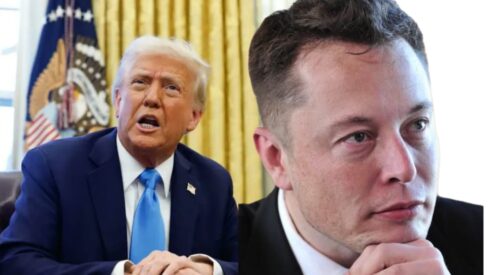In a bold move aimed at streamlining government operations, President Donald Trump has appointed billionaire entrepreneur Elon Musk to lead the newly established Department of Government Efficiency (DOGE). The initiative, which seeks to identify and eliminate wasteful federal expenditures, will first focus on scrutinizing the Department of Defense’s massive $800 billion budget.
During a recent interview, Trump defended his decision to entrust Musk with the responsibility, asserting that the Tesla and SpaceX CEO is not seeking personal gain but is committed to enhancing governmental efficiency. “He’s not gaining anything. In fact, I wonder how he can devote the time to it,” Trump said. The administration believes Musk’s approach, which involves deploying teams of engineers from his companies into federal agencies, will uncover “hundreds of billions of dollars of fraud and abuse” within the Pentagon and beyond.
Military and Education Spending Under the Microscope
Trump has directed DOGE to extend its review to other major departments, including Education and Defense, with plans to initiate investigations within the next 24 hours. “Let’s check the military,” Trump said. “We’re going to find billions, hundreds of billions of dollars of fraud and abuse, and the people elected me on that.”
U.S. Defense Secretary Pete Hegseth has welcomed the move, acknowledging concerns about unchecked military expenditures. “When we spend dollars, we need to know where they’re going and why, and that has not existed at the defense department,” he told Fox News. The Pentagon, long criticized for inefficiencies and overspending, is now under intense scrutiny as Musk’s team embarks on what could be a historic audit.
Legal Challenges and Transparency Concerns
Despite Trump’s confidence in Musk’s leadership, the DOGE initiative has encountered strong opposition from legal experts and Democratic lawmakers. Critics argue that Musk’s close business ties with the federal government present potential conflicts of interest, particularly as some of his companies—such as SpaceX—benefit from lucrative government contracts.
Legal battles have already begun. A federal judge recently blocked DOGE from accessing personal financial data from the Treasury Department, ordering Musk’s team to destroy any records obtained. Additionally, courts have paused Trump’s executive order to eliminate birthright citizenship and suspend USAID operations. The Trump administration has not provided transparency regarding DOGE’s funding, staffing, or operational scope, raising concerns about executive overreach.
Political Reactions and Fallout
Democrats have fiercely criticized Musk’s involvement, accusing the administration of using DOGE as a political tool. Democratic Senator Chris Murphy has warned that shutting down USAID could weaken U.S. influence abroad while benefiting China. “It makes America much less safe around the world, but it helps China,” Murphy told ABC News.
Meanwhile, Vice President JD Vance has dismissed the legal challenges against DOGE, calling them unconstitutional attempts to block the executive branch’s authority. Alina Habba, a top Trump aide, warned that there would be “repercussions for people” trying to obstruct Trump’s policies. However, with Republicans controlling both the White House and Congress, Democrats have few options outside of litigation to counteract DOGE’s actions.
Trump’s Super Bowl Interview and Canada Controversy
Trump’s discussion of Musk and DOGE came during an interview with Fox News journalist Bret Baier ahead of the Super Bowl. The interview marked the return of a presidential tradition absent during the last two editions, as former President Joe Biden declined to participate.
During the exchange, Trump made headlines by reviving his controversial proposal to annex Canada as the 51st U.S. state. “I think Canada would be much better off being a 51st state, because we lose $200 billion a year with Canada,” he claimed, justifying his stance on trade deficits and defense spending.
Trump also took a moment to predict the outcome of the Super Bowl, picking Kansas City to win the championship. His return to the game as a spectator marked another first, as no sitting U.S. president had previously attended the Super Bowl in person.
As the legal battles over DOGE unfold, the initiative’s future remains uncertain. However, with Trump’s unwavering support and Musk’s unorthodox methods, the effort to reshape government efficiency could have lasting political and economic implications.














